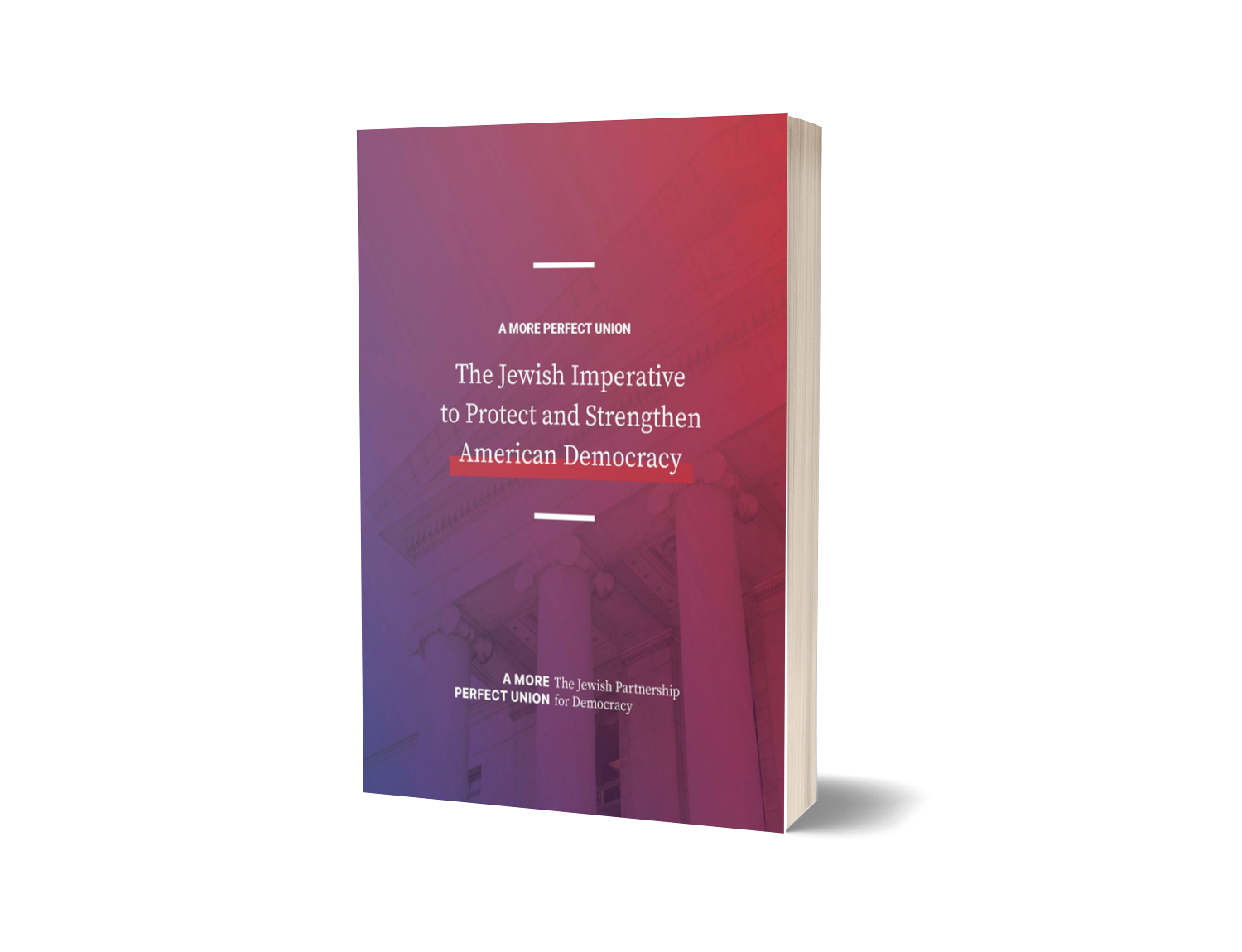
Partner Spotlight:
Temple Emanu-El, Dallas
A Jewish Community Honors Election Workers
Temple Emanu-El has long valued civic engagement. For the past ten years, the Dallas synagogue has encouraged participatory democracy through voter registration drives and a civic engagement committee. Recently, they wondered how they might expand these efforts.
While they had celebrated their successes, including high congregational voter turnout in a city with traditionally low participation, Erica Matsil, Director of Community and Family Engagement, felt that those working behind the scenes deserved recognition, too.
“Who gets forgotten in this work? A lot of times, it’s the people who help get the word out. Yes, voting is a mitzvah and that is an honor, in itself, but what about those who are helping people vote?”
After workshopping a few ideas with A More Perfect Union’s Aaron Dorfman, Temple Emanu-El decided to widen its focus on civic engagement to recognize volunteers through bimah honors.
The idea was unique, but the lift and execution were surprisingly simple: Matsil consulted synagogue records to find congregants who had previously volunteered through their civic engagement committee. She also reviewed their work with March to the Polls, a local nonpartisan organization co-founded by Temple members, which is committed to increasing voter turnout.
Strategic Priorities: Free, Fair, Safe, and Accessible Elections
Network Commitment: Temple Emanu-El commits to institutionalizing bimah honors for congregants engaged in civic service, such as voter registration or poll working.
Partner since: 2023
Dallas, she noted, regularly had a packed elections calendar which offered many opportunities to vote, but also presented a challenge in getting locals to the polls so often. Complicating matters further, Texas was named one of the most difficult states to vote in, according to the Election Law Journal.
“From March through June, you could have voted in five elections, all on different days. We purposely wanted [the honors] to be after all of these runoffs,” explained Matstil. We considered November, but we also wanted to build momentum towards November. With other events and holidays, there’s never a perfect time. So we decided on June.”
In addition to bimah honors, Rabbi Kimberly Herzog Cohen dedicated her sermon to nonpartisan civic engagement:
“Our Torah portion is a reminder that the details and the logistics and the building blocks of our work that we all do can be holy,” said Rabbi Herzog Cohen. “We need countless advocates and poll workers to ensure free, fair, and accessible national, state, and local elections. Living out our Jewish values is always embedded in logistics, with each of us tasked to lift the light through everyday sacred undertakings.”
“[Congregants] were so thankful to have this honor,” said Matsil. “I was shocked by the amount of people that reached out to apologize for not being able to make it. They felt this was a huge, important thing - especially the timing.”
Get involved: For information about how your organization can work with A More Perfect Union,
contact our team at info@jewishdemocracy.org.
Dig into our argument for democracy.
To help you understand our argument, approach, and evidence, we’ve published this brief white paper on the Jewish Imperative to Protect and Strengthen American Democracy.
What is transpartisanship?
We believe that protecting and strengthening American democracy is not a partisan issue.
That's why we pursue our work in a spirit of transpartisanship, which rejects the "us vs. them" mindset that characterizes so many political conversations.
We believe that whatever issues we care about individually – from religious freedom to climate change to fair elections – we all have a stake in American self-governance. Engaging effectively in self-governance requires respect and compromise, and we can only exercise these muscles when we focus on what brings us together rather than what sets us apart.
Ultimately, transpartisanship is both an approach and a commitment – to ourselves, to each other, and to future generations.


